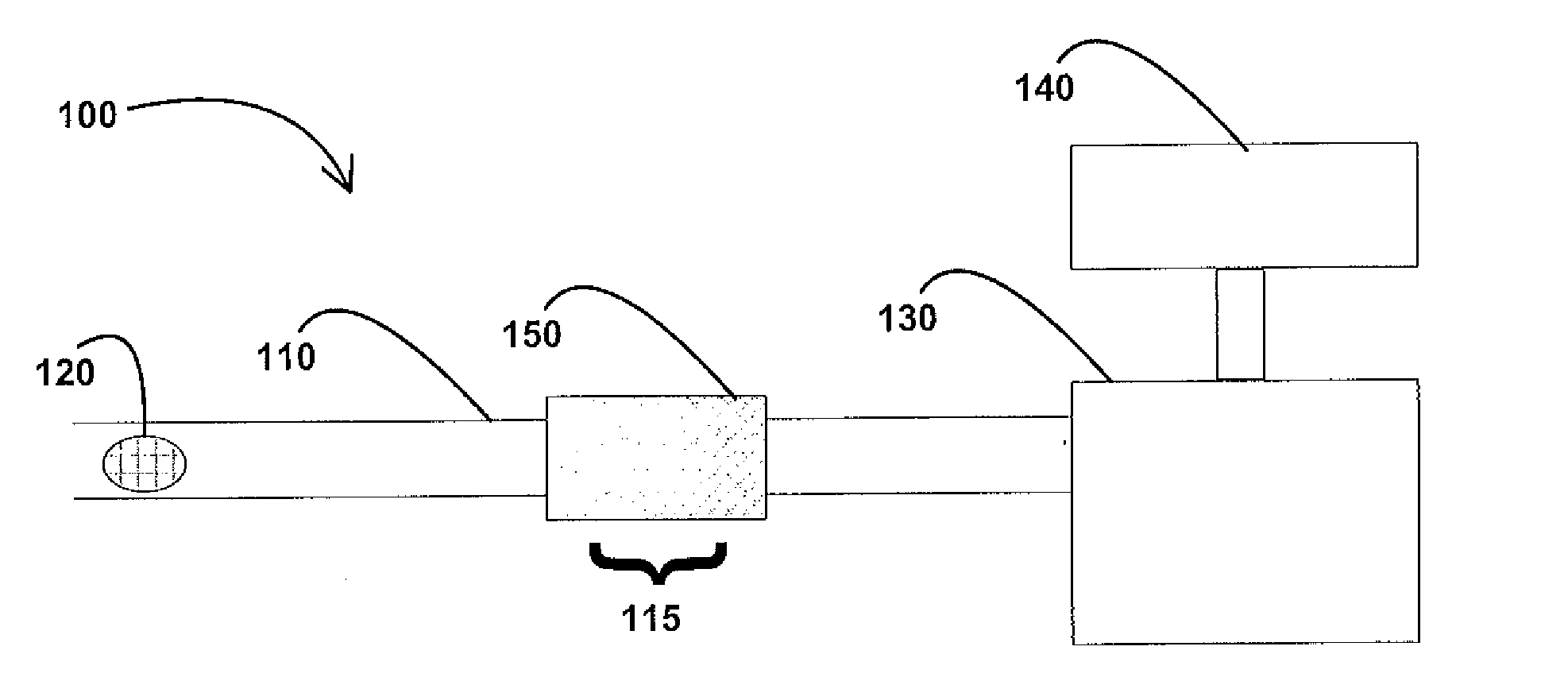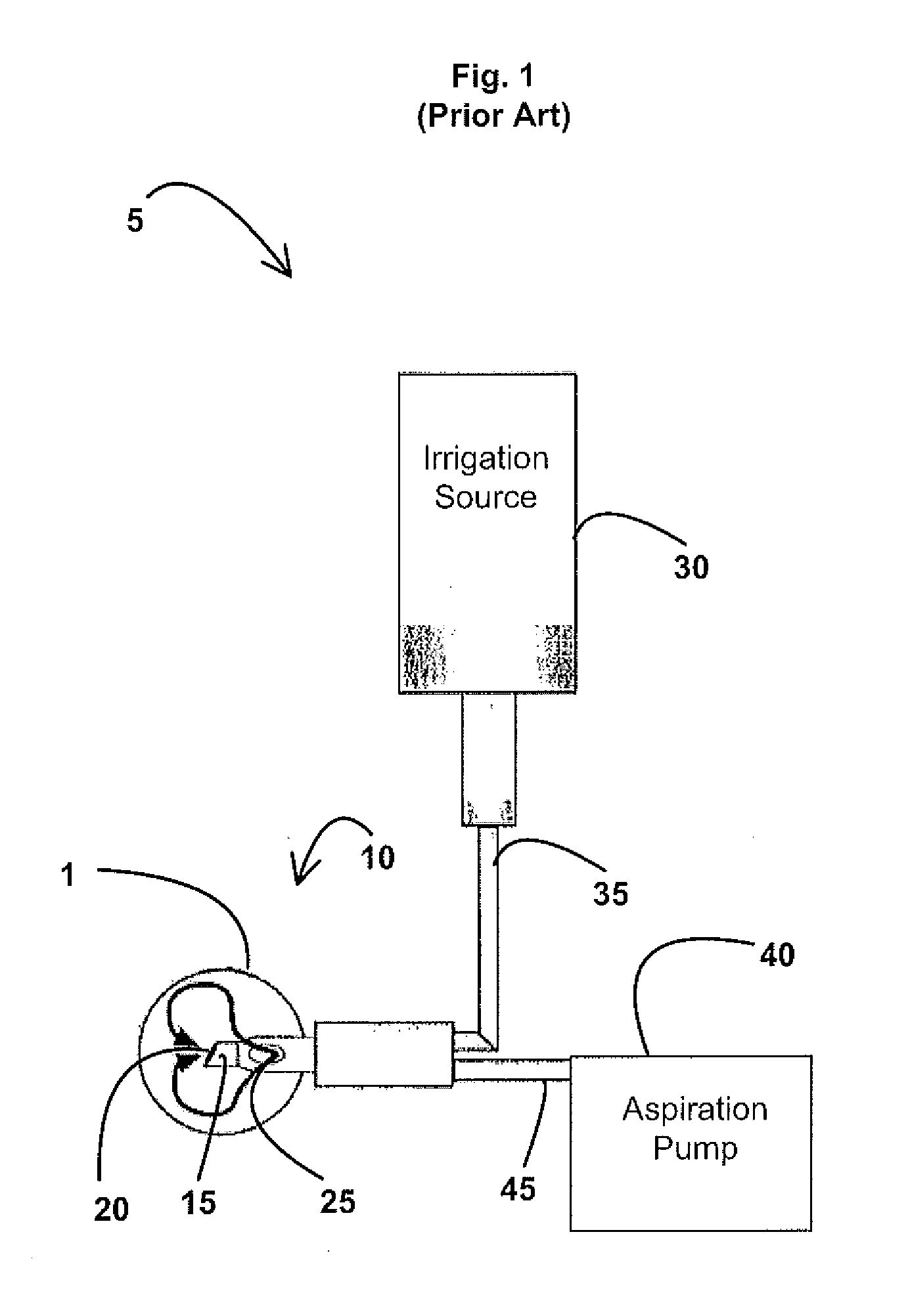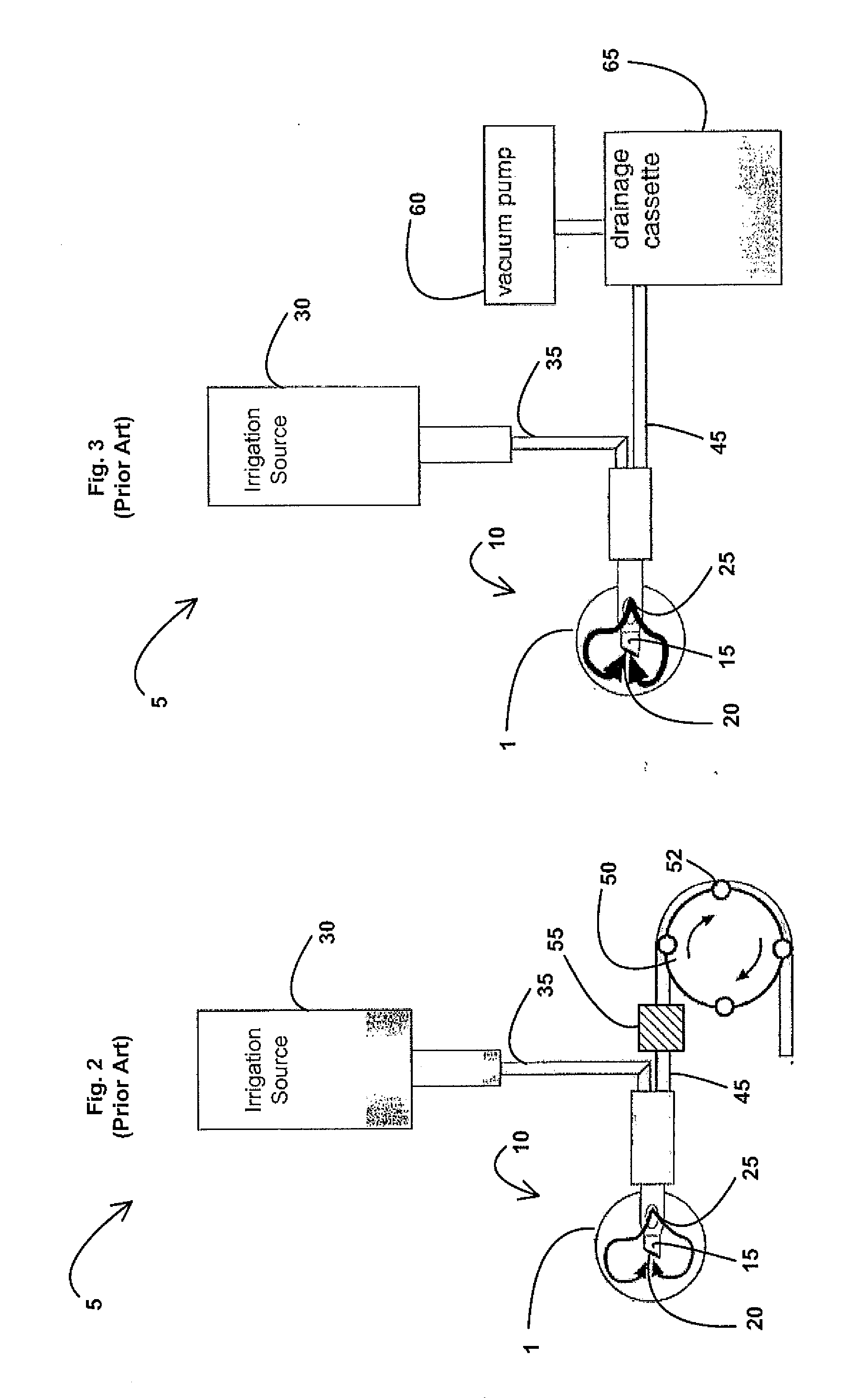Systems and methods for power and flow rate control
a technology of flow rate control applied in the field of fluid control, can solve the problems of negative pressure, increased vacuum, and current system and method of controlling the volumetric flow rate of the vacuum-based pump
- Summary
- Abstract
- Description
- Claims
- Application Information
AI Technical Summary
Benefits of technology
Problems solved by technology
Method used
Image
Examples
Embodiment Construction
[0024]What are described below are preferred embodiments of aspiration systems using vacuum-based pumps, which can be applied to any system, medical (such as phacoemulsification, wound drainage, blood circulation, dialysis, or similar), or non-medical.
[0025]Variable Flow Restrictors
[0026]In general, the rate of fluid flow is a function of three (3) basic parameters: (1) the effective viscosity of the fluid, (2) the operative or driving vacuum level, and (3) the instantaneous effective resistance of the fluid transport pathway (e.g., aspiration line 45). For many surgical procedures, a constant effective viscosity can be assumed particularly if the fluid is predominantly a known irrigation source), and further, the operative or driving vacuum level can be easily measured and adjusted in an open-loop pressure monitoring system; however, for current aspiration systems with vacuum based pumps, the instantaneous effective resistance of the fluid transport pathway is a parameter that can ...
PUM
 Login to View More
Login to View More Abstract
Description
Claims
Application Information
 Login to View More
Login to View More - R&D
- Intellectual Property
- Life Sciences
- Materials
- Tech Scout
- Unparalleled Data Quality
- Higher Quality Content
- 60% Fewer Hallucinations
Browse by: Latest US Patents, China's latest patents, Technical Efficacy Thesaurus, Application Domain, Technology Topic, Popular Technical Reports.
© 2025 PatSnap. All rights reserved.Legal|Privacy policy|Modern Slavery Act Transparency Statement|Sitemap|About US| Contact US: help@patsnap.com



